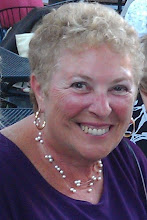Your Booklet - a Vital World Contribution
The following article from a client's weekly ezine seems particularly important to the work you and I do with our tips booklets. His words reinforce what I mean when I say there is no such thing as a saturated market or that your information (or mine) is less than useful in any way. See what you think.
+++++++++++
THE HUNDREDTH HUMAN
By Lloyd J. Thomas, Ph.D.
You might just be the one person needed to change the way human beings function in the world. You may have the power to change human nature...your own as well as humankind's. The phenomenon of the "hundredth monkey" may save the human species from going the way of the dinosaurs. This phenomenon is documented in a book by Lyle Watson, entitled, "Lifetide." Here is the story.
On a group of Japanese islands, there lives a specie of monkey called the Macaca Fuscata. These monkeys have been observed in the wild since the end of World War II. In 1952, on the island of Koshima, scientists were providing the monkeys with sweet potatoes to enhance their diet. The monkeys seemed to like the taste of the potatoes, but found the sand and dirt on them to be very unpleasant.
An 18-month-old female named "Imo" discovered she could remove the sand from the potatoes by washing them in a nearby stream. She taught her mother the solution to the problem. She also taught her playmates, who in turn, taught their mothers.
Gradually, the youngsters of the entire colony of monkeys learned this cultural innovation. By 1958, all the young monkeys had learned to wash sweet potatoes before eating them. Only the adults who imitated their children learned this social improvement observed by many scientists. Other adult monkeys kept right on eating dirty sweet potatoes.
In the Fall of 1958, the startling phenomenon of the "hundredth monkey" occurred. It went something like this. By then, a certain number of the monkeys on Koshima were washing their sweet potatoes.
The exact number is not known, but scientists postulated that there were 99 monkeys washing their food that Autumn morning. They further supposed that later that morning, the hundredth monkey learned how to wash potatoes. It was at that critical moment, the moment the hundredth monkey learned to wash food that...it happened.
Within two or three hours, almost everyone in the tribe of monkeys was washing sweet potatoes before eating them. The last bit of energy provided by the learning of the hundredth monkey had somehow created a cultural breakthrough! The most stunning event observed by the scientists was that the habit of washing sweet potatoes then spontaneously jumped over the sea.
Colonies of Macaca Fuscata monkeys on other islands as well as the troop on the mainland at Takasakiyama, all began washing their sweet potatoes. It was as if, when the hundredth monkey changed her awareness about sweet potatoes, dirt, and how to solve the problem, the entire species achieved the new awareness.
Scientists have concluded that when a certain critical number of beings in a given specie achieves an awareness, this new awareness may be communicated from mind to mind and group to group, without direct observable contact.
The "Hundredth Monkey Phenomenon" means that when only a limited, but critical number of people know a new way of functioning; this new awareness may remain only of in the consciousness of these certain people. But there comes a point at which, if only one more person "tunes in to the new awareness," an "energy field" is modified so that the awareness reaches almost everyone in the specie.
The experiments of Dr. J. B. Rhine at Duke University have repeatedly demonstrated that individuals can communicate private information to each other even though located in different places.
Carl Jung postulated the existence of a human "collective unconscious"
from which comes much of the individual unconscious motivation and behavior we usually refer to as "instinctive." We now know that the strength of this collective unconscious can be modified or amplified to a powerfully effective level when the consciousness of the "hundredth person" is added.
Your individual consciousness can become the "hundredth" needed to change our human awareness about life, war, peace, survival, growth, enjoyment and love. You could be the final one necessary to create the critical number of humans necessary to create a brand new world for human life. What are you doing to create/modify your own awareness along new and vital models? What are you learning and doing to become the "hundredth human?"
+++++++++++++++
Lloyd J. Thomas, Ph.D. has 30+ years experience as a Life Coach and Licensed Psychologist. He is available for coaching in any area presented in "Practical Psychology." Initial coaching sessions are free. Contact him: (970) 568-0173 or E-mail: DrLloyd@CreatingLeaders.com or LJTDAT@aol.com.
To subscribe yourself to Practical Psychology, e-mail your request
to: PracticalPsychology-On@lists.webvalence.com and write "subscribe" in the subject line and an "X" in the body. You will receive Practical Psychology approximately once a week.
++++++++++++
Until next time,
Paulette
http://www.tipsbooklets.com



0 Comments:
Post a Comment
<< Home